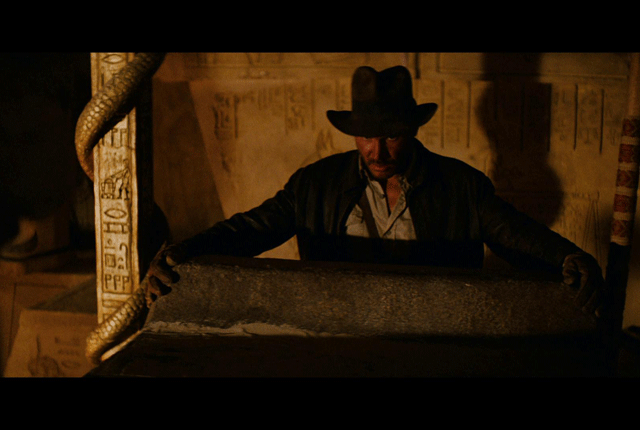by Jay Marshall Wolman, CIPP/US
Like many of you, I saw Star Wars Episode VII: The Force Awakens. I’m a lawyer and had law-oriented thoughts. This post contains spoilers, so scroll past this image:

and this one:

OK, that should be far enough.
- Cyber Security. Star Wars exists in a galaxy where they have some form of holographic Skype/Facetime/etc. The Jedi Council used in the prequels, and Lord Vader communicated with the Emperor this way. Yet, in both A New Hope and in The Force Awakens, we have sensitive information transmitted through a physical medium given to a mobile AI. In The Force Awakens, it makes sense that there are limited copies of the route to Luke. Presumably they are using some sort of DRM to prevent multiple copies from being made. Even so, there was a clear data breach–the AI, BB-8, was hacked through social engineering to reveal the route, copied to the memory banks of those who viewed it. Kylo Ren identified this breach and sought to exploit it; fortunately, Rey was able to prevent it from being exploited, but this was moral luck, and not good planning. Ideally, the data should have been better secured so that even BB-8 could not access it. [This appears to be a general flaw, where the R2-D2 was able to plug into the Death Star and access data and control systems.] Having a single copy, though, also increases the risks that it could be destroyed. [I should also note that it was silly that R2-D2 was given the sole copy of the plans to the Death Star–those should have been immediately uploaded for broad distribution. Another example of poor data management.]
- Kidnapping/Arrests. In A New Hope, the Empire kidnaps and tortures an Imperial Senator and destroys her entire planet without due process. We are told they are evil, so let’s presume ordinary natural rights do not apply under that regime. Fair enough. Presumably the First Order, as a non-governmental entity, certainly not constrained by the laws of war, cannot be similarly judged. But in The Force Awakens, Leia sends Han to bring Ben Solo/Kylo Ren back. As an agent of the First Order and having been complicit with and committed numerous atrocities, one would expect that he would be required to stand trial for his crimes. But on what authority could he be held? The Resistance was not formally part of the New Republic; the support was clandestine. Blowing up Starkiller Base was a justifiable act of self-preservation (though I do wonder why they didn’t attempt to evacuate). Holding and trying Ben for his crimes would require the re-establishment of a legitimate government.
- Slavery. We are supposed to feel bad for FN-2187 because he was taken as a child to be raised and conditioned as a storm trooper. But what of the Jedi? In Revenge of the Sith and in The Force Awakens, we learn of children left (taken?) with the Jedi to be indoctrinated and trained in their ways. There seems to be no regulatory oversight looking out for the welfare of the children. And what of the sentient AIs? Just because they may be conditioned to thank the maker at the drop of a hat does not make them of less value.
- Theft. A tear comes to our eyes when we think of the demise of the late, great, Han Solo. You know, the guy who cheated Jabba the Hut. Who also cheated both the Guavian Death Gang and the Kanjiklub Gang in The Force Awakens. Who steals back the Millenium Falcon for old time’s sake, from Rey, who stole it from her guardian. Granted, it appears that Han did not sell the Falcon, but capturing it mid-flight, seizing its contents and personnel in the process, seems like unlawful self-help. We are also invited to cheer for Rey–a thief, who by moral luck has some skillz. We even get to know Kylo Ren based on his chat with dead-grandpa Vader’s helmet–and how he came into possession of that is likely a matter of theft as well. And let’s not forget the light-saber. You know–the one built by Anakin, stolen by Obi Wan, fenced to Luke, until the rightful owner, Vader, caused it to be deposited on Bespin. However Maz Kanata came into possession, it was not hers to give away, least of all to Rey. As a known Skywalker, Ben Solo clearly had superior title; here, though, since Rey did offer it to Luke (and presumably told Leia), it is back in lawful hands. This, of course, assumes that galactic estate law permitted the light saber to be demised to a Skywalker, notwithstanding the substantial claims against Anakin’s estate.
Looking forward to Episode VIII!

